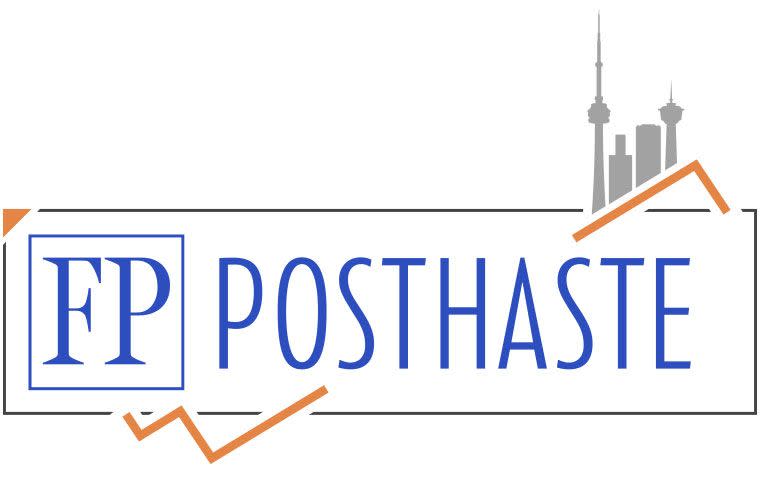Posthaste: Immigration influx will hit housing affordability unless Canada starts building — fast: report


Canada wants 1.5 million immigrants by 2025. That influx will increase home prices and lower affordability unless the country moves swiftly to build much-needed accommodation, according to economists at Desjardins Group.
Randall Bartlett and Marc Desormeaux said in a report released Feb. 13 that Canada must immediately boost housing starts by almost 50 per cent to keep fundamental demand for housing from racing ahead of supply. They aren’t confident that will happen.
“Using history as a guide, the supply response is likely to be insufficient to prevent an increase in prices and an erosion of affordability,” wrote Bartlett and Desormeaux.
The Liberal government of Justin Trudeau is planning a big increase in immigration targets over three years: 465,000 permanent residents in 2023; 485,000 in 2024; and 500,000 in 2025. One of the reasons is to help tackle historic levels of job vacancies.
But some critics say Trudeau appears to have given too little consideration to the impact all those new households will have on property markets. The Desjardins authors noted that leaving immigration at 2018-2021 levels would have a “much more pronounced impact on keeping home prices lower and minimizing the erosion in affordability.”
Victor Dodig, chief executive of the Canadian Imperial Bank of Commerce, told an audience at the Canadian Club Toronto on Feb. 14 that the influx of immigrants will set off the “largest social crisis” over the next decade if something isn’t done to correct the housing shortage.
The Desjardins economists estimate that nationally housing starts will need to increase by an average of 100,000 units from their base case of 210,00 this year on an annualized basis and a base case of 215,000 in 2024. That rate of construction would set a record for the fastest pace of housing starts in Canadian history, they said.
However, the Desjardins economists said Ontario Premier Doug Ford’s “ambitious” plan to encourage the construction of 1.5 million homes would help alleviate the problem.
Canada Mortgage and Housing Corp. released data on Feb. 15 that showed housing starts were headed in the wrong direction, as they fell to their lowest since September 2020 in January, when builders started work on homes at a pace that would yield 215,365 over a year.
Bartlett and Desormeaux argued that housing starts are hitting a “near record pace,” but the surge may have come too late to keep up with the federal government’s immigration targets.
While available housing obviously has an impact on pricing, where new arrivals settle could also play a role.
If immigrants move mostly to British Columbia and Ontario — as they did from 2018 to 2021 — Bartlett and Desormeaux warned that housing prices in Canada’s most expensive regions could become even more so. Instead, if new Canadians were to gravitate to the Prairie provinces, where housing is cheaper, that “would put less pressure on home prices and housing affordability in regions where it is already stretched.” The pair also cited previous research they did indicating that the Prairie provinces have typically done a better job of folding immigrants into their economies.
Still, it’s “wrongheaded” to place all the blame for Canada’s housing woes on rising immigration, the duo argue, laying some portion of the responsibility at the door of policy failures, worker and economic bottlenecks, and investment oversights.
They also cited significant labour shortages in the construction industry and stalling investment in infrastructure and public transit.
“While the surge in newcomers is likely to push home prices higher and erode affordability again, it is important that we recognize that this is not inevitable,” Bartlett and Desormeaux wrote. “Rather than being considered a reason to curb immigration, it should instead be a catalyst for reducing barriers to building more housing. The contribution of immigrants to the Canadian economy well outweighs their impact on the housing market.”
_____________________________________________________________
Was this newsletter forwarded to you? Sign up here to get it delivered to your inbox.
_____________________________________________________________


Canadian home sales declined by three per cent on a month-over-month basis to start the year to post their worst January since 2009, according to data from the Canadian Real Estate Association.
CREA’s monthly housing statistics report, released Feb. 15, found actual (not seasonally adjusted) monthly sales in January were down 37.1 per cent from the year before.
Prices, meanwhile, also declined in January, with the MLS Home Price Index down by 1.9 per cent from December and 12.6 per cent from the year before.
“Early 2023 feels a lot like 2019, where after a year in which it became much harder to qualify for a mortgage, everyone was wondering if the market would pick up in the spring,” Shaun Cathcart, CREA’s senior economist said in a release. — Shantaé Campbell
Read the full story.
___________________________________________________
The parliamentary budget officer will post two reports entitled “Federal Program Spending on Housing in 2022” and “Corporate loss utilization” on the website at pbo-dpb.ca
Pretrial motions for the case of convoy organizers Tamara Lich and Chris Barber, both out on bail
Bank of Canada governor Tiff Macklem will appear before the House of Commons Standing Committee on Finance. He will be accompanied by senior deputy governor Carolyn Rogers
Ontario Premier Doug Ford will provide remarks and hold a media availability. He will be joined by George Pirie, Ontario minister of mines
Alberta Health Minister Jason Copping will be joined by ministers Brian Jean, Kaycee Madu and Rajan Sawhney to outline health workforce investments that will address Alberta’s health workforce challenges
Bank of Canada deputy governor Paul Beaudry to give a speech on the importance of the central bank’s two per cent inflation target
The Greater Vancouver Board of Trade hosts Royce Chwin, president and CEO of Destination Vancouver, at an event entitled “Unlocking Vancouver’s Destination Competitiveness”
Today’s data: Canadian employment insurance for December; U.S. housing starts, building permits, producer price index, initial jobless claims, Philadelphia Fed index
Earnings: Cenovus Energy Inc., Canadian Tire Corp., Agnico Eagle Mines Ltd., Yamana Gold Inc., Iamgold Corp., Home Capital Group Inc., Nestle SA, Fairfax Financial Holdings Ltd., MTY Food Group Inc.
___________________________________________________
_______________________________________________________
‘Read and react’: How Dave McKay is gearing RBC up for a shallow recession
David Rosenberg: Want a portfolio to maximize risk-adjusted returns? It’s not 60/40 or 50/50
MPs escalate food inflation fight with grocers by summoning CEOs to testify
Indigo website still offline one week after cybersecurity incident
4 things that should make investors worry they’re not on the right track
____________________________________________________
Even a decade ago, investing seemed like more of a hassle rather than a benefit for most Canadians. There was still so much you had to do in person or through an expert, with little information online. The introduction of robo-advisers has changed the way more Canadians invest.
A robo-adviser is perfect for the passive, set-it-and-forget-it investor. The platforms are all online, providing automated financial planning and investments based on algorithms with little or even no supervision by humans.
Of course, there are now so many robo-adviser options out there for Canadians to choose from. And not all are created equally. You’ll need a robo-adviser that offers education, high security, low fees, ease of use but also a solid strategy to reach your goals. Our content provider MoneyWise investigates the options.
____________________________________________________
Today’s Posthaste was written by Gigi Suhanic, (@gsuhanic), with additional reporting from The Canadian Press, Thomson Reuters and Bloomberg.
Have a story idea, pitch, embargoed report, or a suggestion for this newsletter? Email us at posthaste@postmedia.com, or hit reply to send us a note.

 Yahoo Finance
Yahoo Finance 




